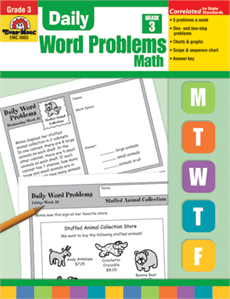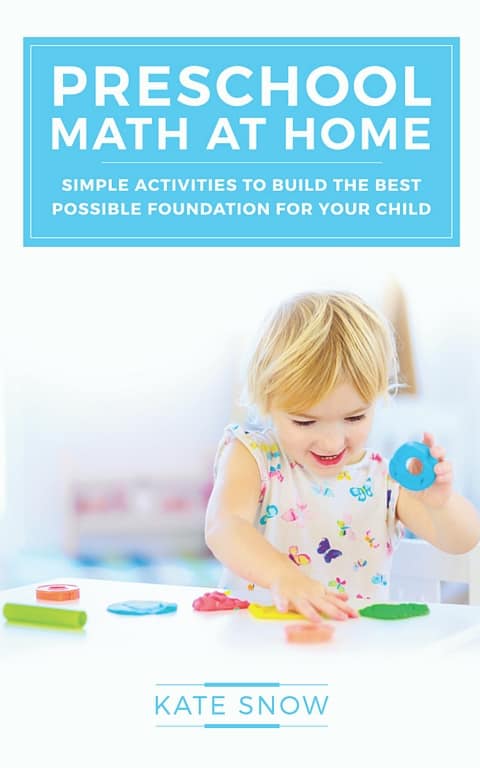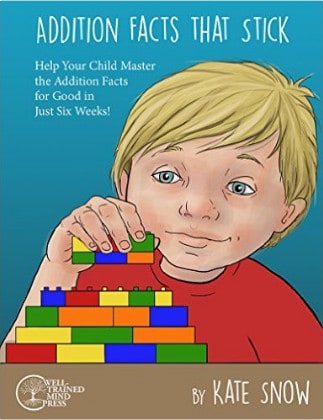12 cheap and easy summer math options for keeping up your child’s math skills over the summer.
According to this article, the average kid loses two months of math computational skills over the summer. No one wants to see their kids forget so much, but it’s especially frustrating for us homeschool parents who worked hard to teach those computational skills in the first place–and will have to reteach them in the fall.
So, how to handle summer learning loss? I’ve put together a list of cheap and easy options for keeping up your child’s math skills over the summer.
1. Play math games.
Math games are perfect for summer. They’re fun, they’re interactive, and they don’t feel quite so much like “school.” I highly recommend RightStart’s game options. You can buy their addition games or multiplication games for just $7.50 each, or you can buy the full set for about $60. It’s pricey, but if you and your kids love math games, it’s a worthy investment. It includes everything from beginning number concepts to money, time, fractions, long division, and more.
2. Help your child master the math facts.
Summer is a great time to master the addition and subtraction facts so that your child is ready to tackle more complex concepts in the fall. With short lessons and fun games, my Facts That Stick series will help your child review and master the math facts. Addition and Subtraction are available now, with Multiplication and Division coming out on July 10.
- Addition Facts That Stick
- Subtraction Facts That Stick
- Multiplication Facts That Stick
- Division Facts That Stick
3. Practice specific skills with Kumon books.
If you’d like your child to do some quick practice with a specific skill this summer (like addition with regrouping, or telling time), Kumon books are a high-quality and inexpensive option. They’re usually very well-organized, with a clear layout and good sequence of exercises. However, only include problems–not instruction–so you’ll need to be ready to answer any questions your child has or teach any unfamiliar concepts.
Kumon offers a huge variety of books, and it’s usually easiest to just search by your child’s grade or the topic that you want to work on. Here’s a link to a list with many options to choose from.
4. Use the Math Mammoth Blue Series to review a specific concept.
If your child struggled with a particular topic this year, summer is a great time for a little reinforcement. The Math Mammoth Blue Series has a variety of (mostly self-teaching) worktexts that focus on just one topic. I’ve personally used several with my own kids and a tutoring student. I’ve been impressed at how well they develop place-value concepts and mental math strategies, in addition to providing practice with written computation. These books actually teach (as opposed to the Kumon books, which only provide practice), so go for these if you’d like to deepen your child’s conceputal understanding of a topic or would like some guidance in how to teach your child.
5. Enjoy some beautiful, multi-age math with your kids.
If you’d like to cultivate your kids’ appreciation of math this summer, look no further than The Adventures of Penrose the Mathematical Cat. Told from the perspective of a mathematician’s cat, this book includes brief stories about everything from fractals to Moebius strips. It also includes suggstions for some hands-on mathematical explorations and crafts. My kids and I had a ball reading through this book together! Recommended for kids from 1st grade and up, although younger children may enjoy listening along.
6. Do a general review of the year.
If you don’t have a specific topic that you’d like your child to review, a grade-level workbook is a good bet for keeping your child’s general math skills sharp. There are many out there to choose from, and it’s fine to just pick up whatever catches your eye at Target. However, if you’re overwhelmed by all the choices, I recommend the Flash Kids Math Skills workbooks. They’re cheap, comprehensive, nicely formatted, and just the right size for your child to complete over the course of the summer.
7. Review the year with word problems.
Word problems help kids review and consolidate their math knowledge. I’ve liked using Evan-Moor’s Daily Word Problems for summer math. They have a nice mix of problems and give kids practice in a variety of skills. (Buy the book for the grade your child is going into, as the books are fairly easy.) The book is set up as 36 weeks, with five problems per week. I’ve had my kids do five problems per day and spread it over the summer.

8. Read some math.
Life of Fred is a quirky, conceptual curriculum that uses a storybook format, with just a few questions at the end of each chapter. I have reservations about using it as a full elementary curriculum, but it makes a great supplement. If your child prefers to read math rather than do math, he’ll enjoy reading about Fred’s adventures.
Seeing math in an entirely different context will help him make connections between topics and review the big picture of math. Pick a book that covers the concepts you covered this past year for a fun review. Life of Fred may be available at your library, too, so check there first.
9. Prepare your rising kindergartner to start a formal math program.
If you’ll have a kindergartner in the fall and you haven’t done much math together, summer is a perfect time to work through Preschool Math at Home. These simple, short activities that will build your child’s number sense in just 5 minutes a day.

10. Try a volume of Beast Academy (or any other curriculum you’ve been wanting to try.)
If you’ve been intrigued by my review of Beast Academy or have been thinking of trying a new curriculum, summer is a perfect time to experiment. Download some samples or buy the first volume and give it a try with your child. You may find you love it and want to use it during the school year, or you may discover it’s not your cup of tea. Either way, you won’t have wasted school time figuring it out.
11. Hone your math teaching skills.
Summer is a great time for professional development for parents. I have several suggestions for books and classes, but my favorite is Arithmetic for Parents. If you feel intimidated by teaching elementary math, this is the book to start with. The author writes with a friendly, accessible voice and does a beautiful job explaining how to teach elementary arithmetic from basic addition through long division. His passion and love of teaching young children shines through and makes it a lovely read. (Perhaps not a beach read, but it’s about as close as you can get for a math education book!)
12. Take the summer off.
If your kids usually remember their math well over the summer, or you don’t have the time and energy for math this summer, it’s okay to just take the summer off. Perhaps your child would benefit more from some focus on reading skills, or you’re having a new baby this summer and just won’t have time. You know what’s best for you, your kids, and your family as a whole, so trust yourself (and don’t feel guilty when you’re talking with your friend who does school all summer!)
Note: Above links may be affiliate links. If you buy an item through one of these links, I’ll receive a small commission, at no additional cost to you. Thanks for your support!
Updated June 2018









Thanks for all the suggestions! We did buy Beast Academy for fall, but it’s great to have other options to shake things up during the summer. I’d also add TimezAttack.com to the list – they have free and inexpensive options and it’s a fun game for early elementary because it’s not “little-kid”ish.
TimezAttack looks great. I’ve never used it, but I see what you mean about it having more appeal for big kids. Thanks for the tip!
I was just thinking that I needed to put together a plan for math for this summer. This list is so helpful! Trying out Beast Academy and Life of Fred looks like it is right up my alley.
Fabulous post!Thanks for the suggestions.
There’s an ebook called Acing Math that has a bunch of math card games with directions on how to play them. We homeschool all year round and I’m using the book to help cement math facts in my son’s memory. He doesn’t like math. BTW, I LOVE your site! Math’s not my favorite subject either, but you’ve made it much more interesting and fun for me! Thank you.
Thanks, Kate! Very helpful!
I love your number 12! I am both having a baby this summer, and focusing on reading skills with my 4-and 6-year-olds. All other formal learning is on hold for the summer season. I’m hoping I can make great strides in reading with both of them for the next five weeks (before baby comes), and that will give the boost we need for the upcoming year. Love all your other ideas, too, for future summers.
I’ve learned great tips and tons of resources from you every week. I’m a recent subscriber but one tip you keep repeating and the one I need to read is do what’s best for your family! Thank you for helping me remember to keep our family’s goal central.
My 10yo and 9yo just began their free trial of Dreambox. I’ve watched over the kids shoulders and am unsure yet why this would be worth paying for (especially since Khan Academy is free). Could you possibly expound on why you find it valuable for your children?
Also, any higher elementary math apps you’d recommend for Kindle Fire? We don’t have an iPad.
Thanks for your time… Definitely enjoy the ideas, videos, and tips on your blog!
Hi Ryan,
I found Dreambox more valuable than Khan Academy for my kids for two reasons. First, it’s a lot more fun. My daughter loves all the little games and adventures that Dreambox includes, and they definitely help keep her motivated. Second, I find Dreambox helps kids understand concepts very gradually and intuitively. There’s a lot of step-by-step scaffolding that helps children not just solve practice problems but also build their conceptual understanding at the same time.
That said, if your kids don’t mind doing Khan’s more simple interface, and you’re just looking for a good source of practice problems, free is always good, too! 🙂
Happy Math!
Kate
P.S. Sorry, no favorite apps to recommend.
Thanks for this article! Based on your advice, I just bought the RightStart games package. I am excited to dive in, but I am getting really stuck on the use of the Asian numbering system (ten 1, ten 2…2-ten, etc.). My daughter is currently doing Singapore Kindergarten B and already pretty familiar with numbers to 100. This seems like it would be confusing to introduce now and to then have to make the connection to “eleven, twelve…twenty, etc.). Any thoughts? This is hanging me up because it seems daunting yet I don’t want to miss the full value of the abacus and games.
Hi Kristen, I ran into the same issue with my second child. In the lessons that focused on place value, I often would say the numbers both way: “one ten two, twelve”, to make sure she was thinking about the numbers both with their usual name and in terms of their place value. Overall, don’t worry about it too much and just watch your daughter to make sure she’s understanding the underlying concept of place value. As long as she gets the idea, it doesn’t matter which way you name the numbers.
How you enjoy the program! Happy math!
Kate
We never finish a math book by the end of a school year. We always just pick it back up on the fall and keep going. My method – especially for the kids who struggle more with math – is to do just one page of math (rather than a full lesson) on summer days we don’t leave the house. It keeps it fresh, keeps math moving forward and makes a huge difference come “back to school” in the fall.
That’s a great way to handle it, Robyn!
What do you think of supplementary programs such as Aloha math and Russian math?
Sorry, I don’t have enough experience with either to be able to say.